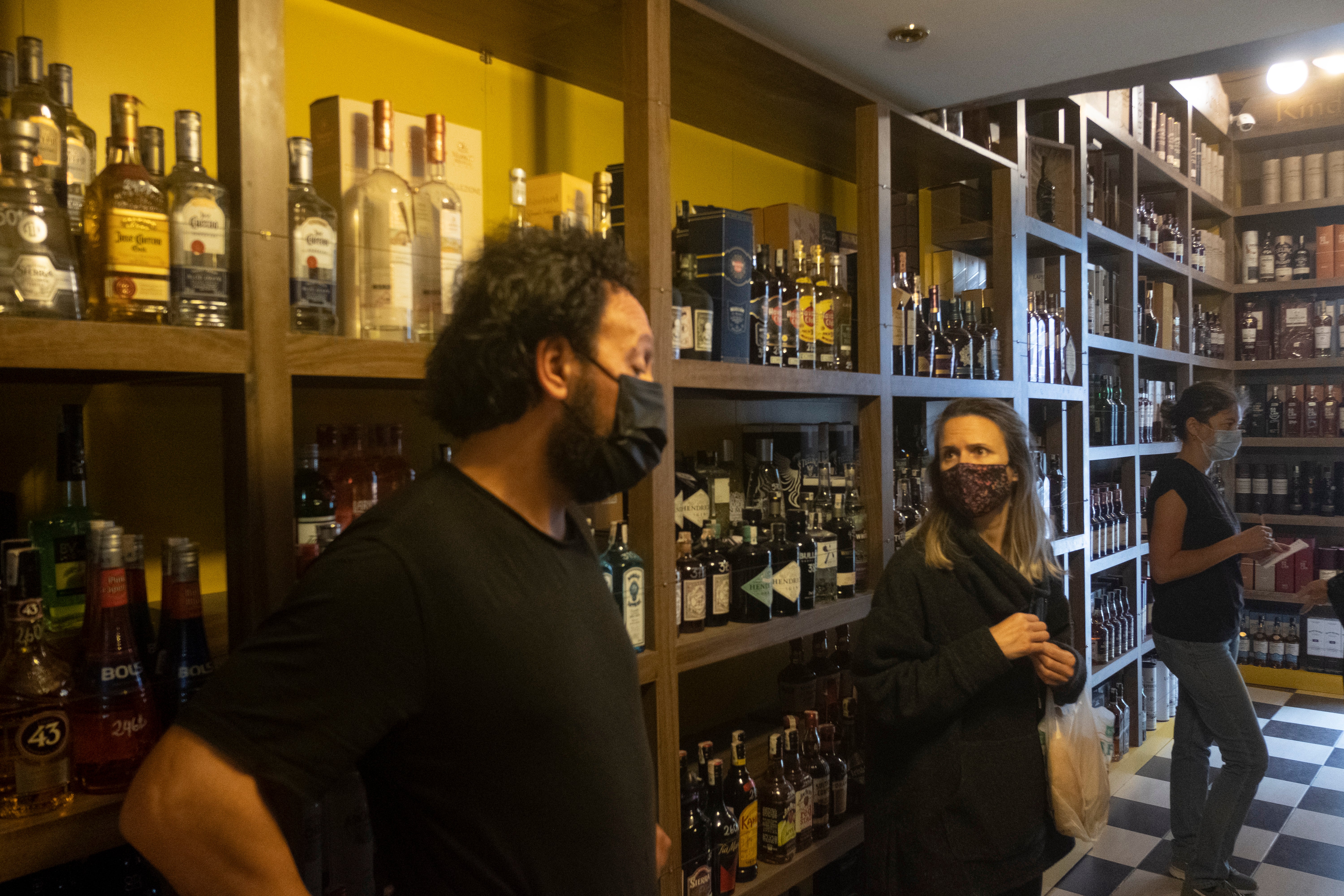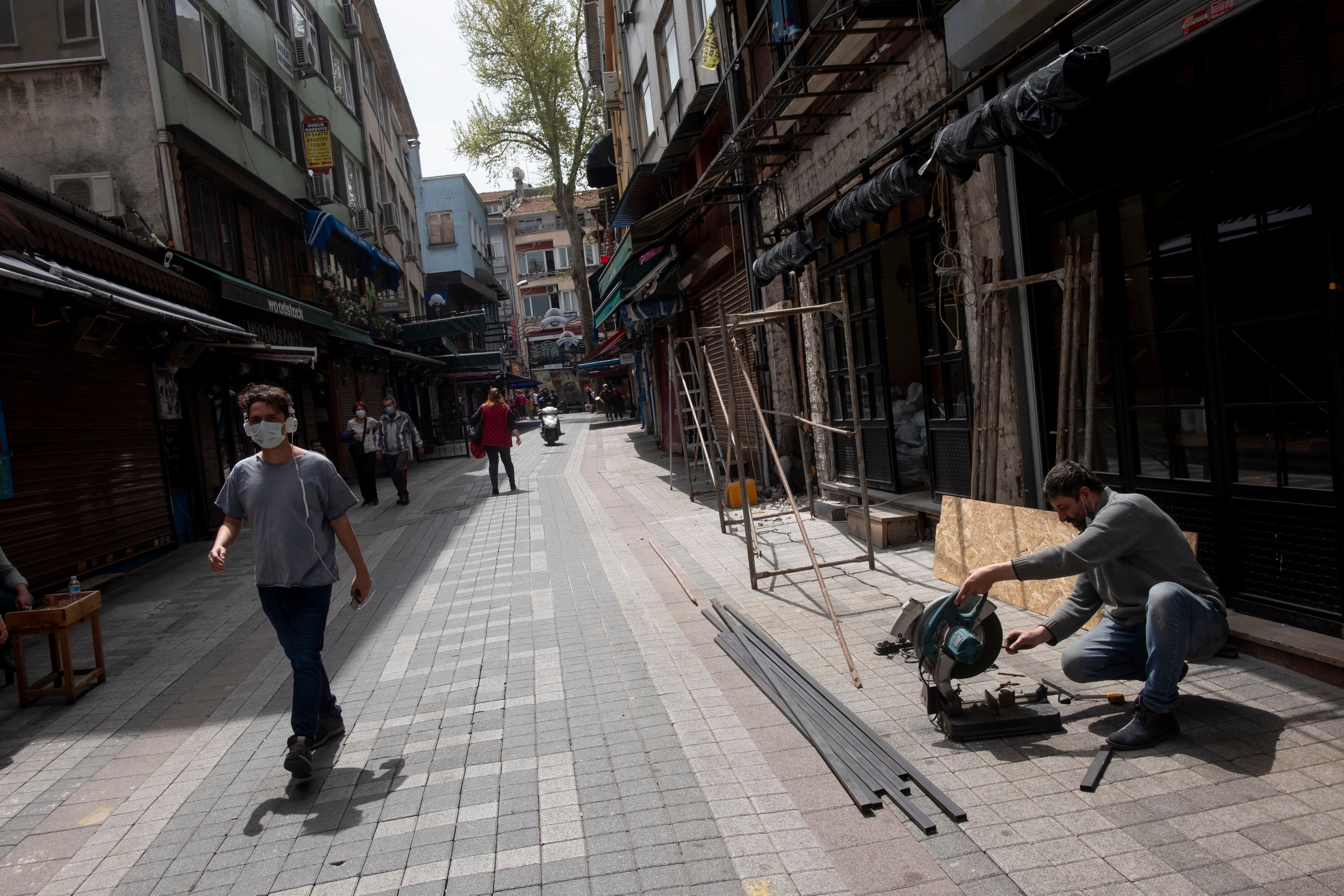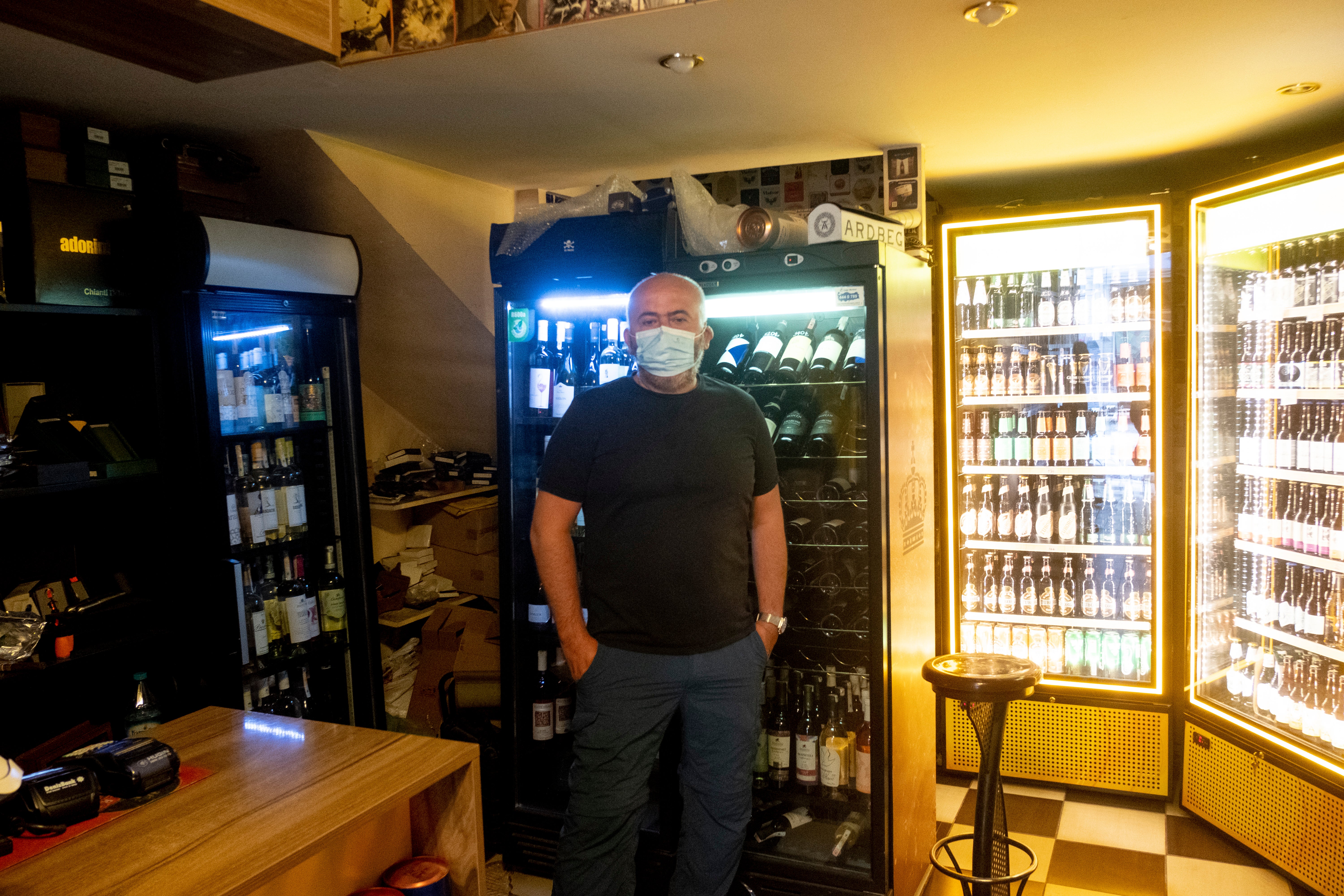Last call before Turkey lockdown prompts alcohol sales surge and worries about religious bullying
Government’s draconian 17-day coronavirus lockdown comes with ban on alcohol sales

Your support helps us to tell the story
From reproductive rights to climate change to Big Tech, The Independent is on the ground when the story is developing. Whether it's investigating the financials of Elon Musk's pro-Trump PAC or producing our latest documentary, 'The A Word', which shines a light on the American women fighting for reproductive rights, we know how important it is to parse out the facts from the messaging.
At such a critical moment in US history, we need reporters on the ground. Your donation allows us to keep sending journalists to speak to both sides of the story.
The Independent is trusted by Americans across the entire political spectrum. And unlike many other quality news outlets, we choose not to lock Americans out of our reporting and analysis with paywalls. We believe quality journalism should be available to everyone, paid for by those who can afford it.
Your support makes all the difference.An unprecedented decision by Turkey’s government to halt all alcohol sales for two-and-a-half weeks has alarmed consumers and vendors of spirits, and prompted a mad rush at liquor stores by drinkers stocking up for the lockdown.
The effective ban on sales is being imposed as part of a 17-day coronavirus lockdown beginning Thursday night and ending 17 May, which coincides with the final stretch of the Islamic fasting month of Ramadan.
The country’s infection and death rates of the virus have spiked, with daily fatalities in recent days hovering around and all time high of 350. Only grocery stores, bakeries and supermarkets will be allowed to open during limited business hours during the lockdown.
But alcohol shops were allowed to open and grocers permitted to sell liquor during similarly draconian lockdowns last spring. Many fear the conservative government of President Recep Tayyip Erdogan is attempting to impose its values on the rest of the country.
"This is clearly a blow against the private life and the food and beverage culture,” Ozgur Aybas, president of an association that represents Turkish liquor stores, wrote in a tweet. “Coronavirus is the excuse.”
Turkey’s authorities have been accused of using the pandemic as a way to push through their conservative social agenda. For example, unlike western Europe, Turkish schools have been mostly closed and children taught from home during the pandemic, placing a burden on working women. Opposition politicians decried the ban, which appears to have been snuck through on orders of governors allied with Mr Erdogan’s Justice Development and Party (AKP).
"This ban has nothing to do with the pandemic,” opposition lawmaker Veli Agbaba wrote in a tweet. “It is completely ideological. It is the last straw in the AKP’s intervention in the people’s lifestyle and not in the pandemic.”
Liquor industry purveyors say they have already lost tens of thousands of dollars because of the lockdowns. Alcohol sales had already been barred during lockdown weekends, with the excuse that it was unfair to liquor stores, called tekel in Turkish, to allow supermarkets to sell. Restricted business hours had also hurt.
“The weekend bans didn’t have much of an effect because people were buying on Fridays,” said Mete Eser, owner of a wine shop. “What did affect us badly was they made us shut down at six on weekdays because people work late and they don’t have time to buy booze.”

One tekel owner said he’d lost an estimated $35,000 in revenue because of the various lockdowns over the last 14 months, in large part because customers began shying away from his store and seeking more consistent channels for procuring booze. Grumpy customers kept complaining they couldn’t keep track of when their favourite neighbourhood stores were open or closed.
“The biggest worry is that they will get used to not coming,” he said. “Once people start getting used to using supermarkets they won’t come to small shops. Once I am closed for so long they will develop either habits.”
Liquor stores say hostility to their trade has been building.
It’s not just the lockdown but a general official antipathy. One store owner says he was fined $500 for failing to have a sticker on the floor of his store calling for social distancing, even though there was no violation of health measures. They say the hostility was not just limited to Mr Erdogan and his AKP, but even nominally secular opposition parties who see in the liquor industry an easy target to shake down for cash and blame for social ills.
“I can’t know what’s going on through their minds,” said one alcohol industry purveyor. “But their general attitude says something. They don’t even use the word ‘bars.’ They keep saying restaurants are closed. The problem is that the government sees alcohol as a sin.”
Turkey has a long secular tradition dating back to the 1923 founding of the republic by its first president, Mustafa Kemal Ataturk, himself a dedicated drinker. Alcohol remains a big business in Turkey, with significant domestic consumption as well as exports, led by the beer maker Efes. The beer market alone is estimated to be worth about $3 billion annually.
But economic troubles and increasing taxation have hurt the industry, and analysts describe steep declines in sales during the coronavirus pandemic, which demolished nightlife in big cities like Istanbul and Izmir as well as in resort cities that are draws for Turkish and foreign tourists.

“Times are very bad for the alcohol industry,” said Mr Eser. “Who is getting hurt most are the wholesalers because they mostly serve bars and restaurants.”
Ahead of the impending lockdown, liquor stores and supermarket alcohol sections were stripped bare by customers stocking up, and vendors reported a tripling of last-minute sales, with distributors struggling to find stock.
In the meantime, a growing underground liquor market is flourishing. Stores may be closed because of curfew, but anyone with the phone number of a private vendor can get beer cigarettes delivered to their home. Many brew beer or make wine at home using tips and kits they find on the internet.
“I made 44 bottles of beer and 10 liters of wine at home and am going to drink that during the lockdown,” said one customer at an Istanbul tekel.
People in the industry say they doubt the government would ever ban alcohol sales altogether, as in Iran or Saudi Arabia. Too much money is at stake, and too many members of the ruling coalition themselves are drinkers.
“In a country where the mainstay of the economy is tourism they can’t ban alcohol it to certain areas and they can confine it to certain areas,” Mr Eser said. “If they consider a ban, they should watch some documentaries on prohibition in America.”
Join our commenting forum
Join thought-provoking conversations, follow other Independent readers and see their replies
Comments